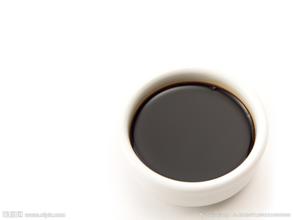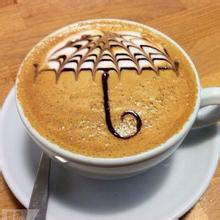Introduction to the varieties of Yunnan Coffee Bean produced by Grinding and Calibration method
Although Zhu Kula is poor and backward, it has an inextricable bond with coffee. In addition to growing coffee all over the country, the villagers all have a tradition of drinking coffee: self-growing, self-grinding and self-brewing, and now men, women and children in the village have the habit of drinking coffee. The villagers here have a special feeling for the coffee tree, even if the coffee beans do not bring them any economic benefits, the villagers are not willing to cut down a coffee tree.
Zhukula Village receives guests with local coffee and walnuts, although the coffee made from earthen cans is not the best, but this primitive drinking method reflects the love of coffee among Zhukula villagers and is the highest etiquette reception for guests. The unique and rich original coffee culture makes everyone who knows Zhu Kula have to sigh that it is worthy of the first coffee village in China.
Ancient church
Ancient church
Zhukula coffee forest belongs to Arabica bean (Arabica) Yunnan small grain Bobang (bourbon) and Tiebika (Typica) varieties.
By 2014, the coffee planting area of Yunnan Province is 1.83 million mu, and it is estimated that the coffee planting area of Yunnan Province will reach 2.8 million mu by 2020.
Main producing area
Small-grain coffee is suitable for growing in the mountains at an altitude of 800 to 1800 meters. If the altitude is too high, it will taste sour, and if it is too low, it will taste bitter. Small grains of coffee are mostly planted in dry and hot valleys about 1100 meters above sea level, so they are moderately sour, rich and mellow. There is a unique environment suitable for the growth of small seed coffee in many areas of Yunnan, and the quality of small seed coffee is excellent.
The planting areas are mainly distributed in Lincang, Baoshan, Simao, Xishuangbanna, Dehong, Nujiang and other states.
The average temperature of Lujiangba in Baoshan is 21.5℃, and the highest is 40.4 ℃, which is basically frost-free all the year round. It is recognized as the best producing area of small-grain coffee. The small-grain coffee cultivated here is famous at home and abroad for its strong but not bitter, fragrant but not strong, well-proportioned small noodles, mellow and fruity. Although the environmental problems of coffee cultivation can reach the standard of hot areas, they are far away from the equator, evaporation, large-scale coffee cultivation in Yunnan is less than 1100m above sea level, the severe drought in Yunnan in recent years, and the frost period in the producing areas, and so on, all make coffee planting can not be guaranteed normally, which directly affects the quality of coffee production. As for other processing problems, not to mention the quality of farmers, tea farmers drink tea for generations, but farmers may not drink coffee all their lives, so we do not increase too much interest in planting. Since the early 1990s, in order to improve the enthusiasm of farmers, Baoshan Rezuo has introduced a Katim variety bred by the Portuguese Coffee Rust Research Center with Timor (medium grain, Tim) and Caturra (small grain, Kaddura), and has been popularized and planted with numerous titles. This variety has solved many factors such as disease and insect disasters and drought resistance, and the important thing is that the yield per mu has nearly doubled. Although it has increased the enthusiasm of farmers to grow coffee, it has also become the reason for the low quality of Yunnan coffee from now on. At the same time, Nestl é and Maxwell entered China and began to promote coffee varieties suitable for instant coffee in Pu'er and other places: S288, natural hybrid of large seed and small seed and S26 of kent hybrid of Arabica Kent in India, which had first-class rust resistance, but with low planting difficulty and adaptability, it basically stopped planting at the beginning of the 20th century.

Important Notice :
前街咖啡 FrontStreet Coffee has moved to new addredd:
FrontStreet Coffee Address: 315,Donghua East Road,GuangZhou
Tel:020 38364473
- Prev

Flavor description of Kilimanjaro Coffee beans introduction to the production area of Grinding scale treatment
First: choose good quality coffee beans, because the use of poor quality coffee beans, of course, will greatly damage the flavor of coffee, even if the production of a very balanced single coffee, but also can not make delicious coffee, the choice of good quality coffee beans is the biggest point. Second: get rid of defective beans, mixed with defective beans, the taste will become worse. So we should get rid of the defective beans without stinginess.
- Next

Description of Grinding scale Flavor of Katim Coffee beans Variety introduction of Manor treatment
In the suitable forest land, the annual average temperature is 1921 ℃, the accumulated temperature of 10 ℃ is more than 6800 ℃, the coldest monthly average temperature is 11.5 ℃, the absolute lowest temperature is above 1 ℃, the coldest monthly average temperature is 11.5 ℃, the monthly mean temperature of 13 ℃ is more than two months, the extremely lowest general year is above 0 ℃, and some years appear-1 ℃ or short-2 ℃. Below 1200m above sea level, annual rainfall 1
Related
- Detailed explanation of Jadeite planting Land in Panamanian Jadeite Manor introduction to the grading system of Jadeite competitive bidding, Red bid, Green bid and Rose Summer
- Story of Coffee planting in Brenka region of Costa Rica Stonehenge Manor anaerobic heavy honey treatment of flavor mouth
- What's on the barrel of Blue Mountain Coffee beans?
- Can American coffee also pull flowers? How to use hot American style to pull out a good-looking pattern?
- Can you make a cold extract with coffee beans? What is the right proportion for cold-extracted coffee formula?
- Indonesian PWN Gold Mandrine Coffee Origin Features Flavor How to Chong? Mandolin coffee is American.
- A brief introduction to the flavor characteristics of Brazilian yellow bourbon coffee beans
- What is the effect of different water quality on the flavor of cold-extracted coffee? What kind of water is best for brewing coffee?
- Why do you think of Rose Summer whenever you mention Panamanian coffee?
- Introduction to the characteristics of authentic blue mountain coffee bean producing areas? What is the CIB Coffee Authority in Jamaica?

